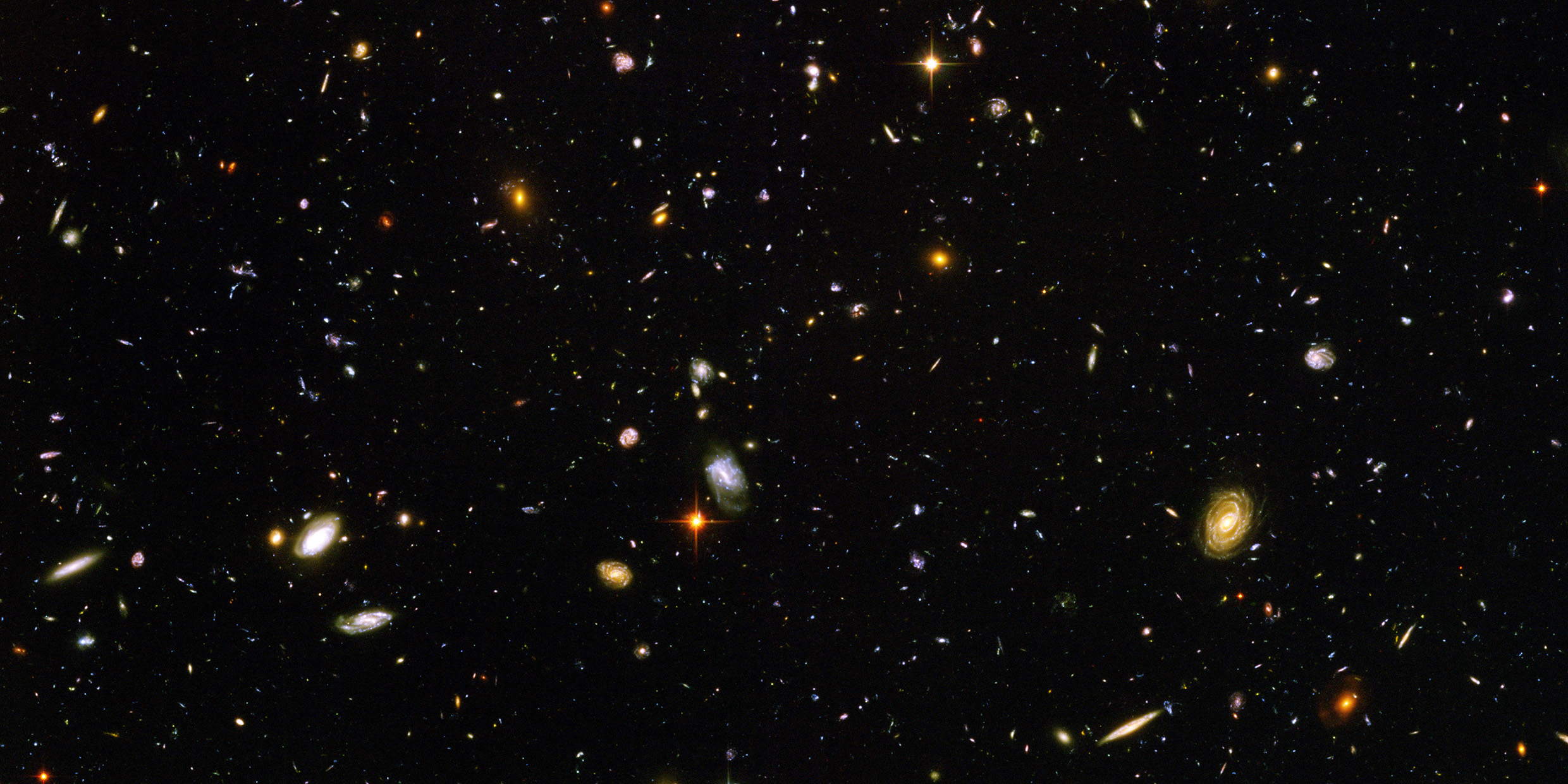Originally published 26 November 2006
Fourteen billion is the age of the universe in years.
12 billion is the distance to the farthest visible galaxies in light-years.
100 billion is the number of galaxies potentially visible to the Hubble Space Telescope.
4 billion is the age of life on Earth in years.
1 billion is the distance to Saturn in miles.
1 billion is the number of creatures in 1 acre of rain forest.
3 billion is the number of nucleotide pairs (the basic unit of the genetic code) in human DNA.
100 billion is the number of neurons in the human brain.
7 billion is the number of human beings on the planet, or will be soon enough.
It seems like almost everything we talk about in science today is expressed in billions. (I’ve done some rounding off.) The human mind reels before such numbers.
What does it mean to live in a universe of 100 billion galaxies, each of which contains 10s or 100s of billions of stars?
What does it mean to live in a universe that is billions of light-years wide (at least), each light-year equal to 1,000s of billions of miles?
What does it mean to be part of a history that is billions of years long, against which a human lifetime is a snap of the fingers?
What does it mean to say that each of the 1,000s of billions of cells in our bodies contains a complete DNA blueprint for making a physical self, each of which contains billions of chemical units that must be reproduced exactly each time the cell divides?
How are we supposed to feel at home in a universe that soars in its billions almost beyond the powers of our reckoning?
Science lays before us a stupendous story of creation — a gigamyth — sweeping in its grandeur, myriad in its dimensions, and we can only shake our heads in incomprehension.
No wonder so many of us retreat into the cozy, egglike world of our ancestors, thousands of miles wide, thousands of years old.
What is a billion anyway?
If you started counting at birth, and counted day and night, unceasingly, you could just about count to a billion in a human lifetime. It would take 100 lifetimes to count the galaxies potentially visible in the sky.
A billion is the number of grains of salt in two dozen one-pound boxes of salt. There are more stars in the Milky Way Galaxy than there are grains in 10,000 boxes of salt.
A billion is the number of letters in five sets of the 32-volume Encyclopedia Britannica. It would take 23 sets of the Britannica to have a letter for each year of Earth’s history (the span of a typical human life is the last line of the last volume). It would take 10 sets of the Britannica to contain the information in human DNA. That’s the informational equivalent of 10 sets of the Britannica in every human cell.
OK, we can rattle off analogies, but big numbers still make us dizzy, still shake us to our philosophical cores.
We stand in awe of the yawning multitudes. Or recoil in terror.
How does one learn to live — comfortably, happily — in a universe of billions?
For one thing, we can start young. A child’s mind is wonderfully elastic. Children who had been exposed to big numbers at a young age came into my astronomy and Earth history classes with stretched imaginations. Star Trekkies and dinosaur buffs took to the billions like ducks to water.
Computers help. Six-year-olds these days talk knowingly of gigabytes. The new Sony PlayStation 3 has a 60 gigabyte drive. These machines do billions of operations per second. Computers are breeding a giga-generation.
Meanwhile, the rest of us struggle to feel at home in the giga-universe.
I have the Hubble Ultra Deep Field photograph as the desktop on my computer. The photo is the deepest view we have ever had into space. It shows a part of sky equal to the intersection of crossed straight pins held at arm’s length. The shutter of the camera was open for a total of 11.3 days. Nearly 10,000 galaxies are visible in the photo. The most distant galaxy in the photograph is about 12 billion light-years away.
The Hubble photo is before me as I write, filling the margins of the screen around the edges of my word-processing document with hints of gigatude.
Each of the specks of light on the photograph is a galaxy of stars and planets. Within each speck there are a thousand billion universes such as the one that Dante traversed in the Divine Comedy. And the grandeur of that cosy little universe stretched Dante’s powers of description.
Who will take us on an equal tour of the universe of the Hubble and teach us to feel at home? Carl Sagan gave his his best shot but he was not Dante’s equal. We await our first great gigapoet.



